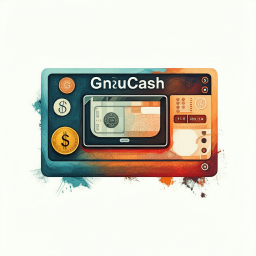Physical Address
304 North Cardinal St.
Dorchester Center, MA 02124
Physical Address
304 North Cardinal St.
Dorchester Center, MA 02124

This guide explores selecting the right bookkeeping software for small businesses. Running a small business means juggling many responsibilities, and keeping your finances in order is one of the most critical. From tracking expenses to preparing for tax season, having the right bookkeeping software for small business is very important. Yes, it’s theoretically possible to do bookkeeping manually using spreadsheets and even handwritten ledgers. After all, that’s what our parent’s did. But having the right tools saves you valuable time and may even help prevent costly errors.
The right bookkeeping software for small business can help you stay organized, make better financial decisions, and save time—so you can focus on growing your business.
With so many small business bookkeeping software options available, deciding which one is best for your needs can feel overwhelming. This guide will walk you through the top choices, what to consider when selecting software, and how to leverage features for maximum benefit.
Note: If you didn’t yet read our article: Bookkeeping for Small Business, we recommend that you read it before continuing this article.
No matter the size or complexity of your operation, accurate bookkeeping is the foundation of financial success. Here’s why using dedicated software is essential:
For small businesses, these benefits mean less time spent on spreadsheets and more time focusing on your core operations.

To simplify your search, here’s a breakdown of some of the best for small business software solutions currently available, categorized by their key features and target audiences:
| Software | Key Features | Best For | Price Range |
| QuickBooks | Expense tracking, payroll, tax prep | Small to medium businesses | $25–$180/month |
| Xero | Bank reconciliation, project tracking | Service-based businesses | $13–$70/month |
| Wave | Free invoicing, receipts, reports | Freelancers and solopreneurs | Free |
| FreshBooks | Time tracking, client management | Professionals and creatives | $15–$55/month |
| GnuCash | Open-source, simple accounting tools | Startups and DIY enthusiasts | Free |
These options range from robust, full-featured bookkeeping software for small business like QuickBooks to free, straightforward tools like Wave and GnuCash. Whether you’re just starting out or managing a growing business, there’s a solution for you.
Not all bookkeeping software is created equal. Here’s what to prioritize when evaluating options:

One of the first decisions you’ll face is whether to use free or paid software. Let’s explore the pros and cons:
For businesses handling significant transactions or requiring advanced capabilities, investing in paid software can offer better long-term value.

For small businesses looking for a no-cost solution, GnuCash is a standout option. It’s an open-source platform that offers basic bookkeeping tools like transaction tracking, financial reporting, and budgeting. While it lacks the polish and features of paid bookkeeping software, it’s a reliable option for startups and DIY bookkeepers who need an efficient, budget-friendly bookkeeping for small business software tool .
When deciding on the best bookkeeping software for small business, ask yourself these questions:
Modern small business bookkeeping software is becoming increasingly sophisticated, with many platforms integrating artificial intelligence (AI) to streamline processes. Features like automated transaction categorization, cash flow forecasting, and error detection are becoming standard, allowing small businesses to manage finances more efficiently than ever.
Choosing the right bookkeeping software for small business is a critical step in ensuring your financial success. Start by evaluating your needs, setting a budget, and trying out free trials to see what works best for your workflow.
Ready to dive deeper? Check out our related pages for more insights:
With the right software in place, you’ll be better equipped to tackle your financial tasks and focus on growing your business.
For more information check out this video: 5 Best Bookkeeping Software for Small Business [Pros & Cons – 2023]:
1. What is the best bookkeeping software for my small business?
The best software depends on your business’s unique needs. QuickBooks Online is great for versatility, while Wave offers a free solution for startups. For open-source enthusiasts, GnuCash provides robust features for free.
2. Is free bookkeeping software worth it?
Free bookkeeping software, like Wave and GnuCash, can be excellent for startups with limited budgets. However, they may lack advanced features found in paid solutions. Evaluate your needs to decide.
3. How secure is cloud-based bookkeeping?
Cloud-based solutions typically use encryption to safeguard your data. Before committing, always check for features like two-factor authentication and a solid privacy policy.
4. Can I switch software later?
Most software supports data export and import, making transitions possible. However, it’s best to choose software that aligns with your long-term needs to avoid disruption.
5. How can I decide which software is right for my business?
Start by identifying your priorities: cost, ease of use, integration with other tools, or specific features like invoicing or inventory tracking. Then explore free trials or demos.
6. Where can I learn more about small business bookkeeping software?
Read more about this topic in this article from Forbes: Best Accounting Software For Small Business of 2024.